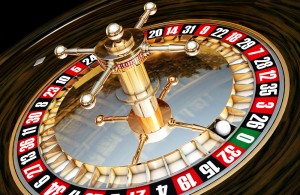 The attorneys at Gana Weinstein LLP have filed a complaint on behalf of investors relating to financial advisor Jason Mitsuda’s (Mitsuda) sales of structured products. At the time Mitsuda was registered with Equitable Advisors, LLC (Equitable) and has since been registered with Ameriprise Financial Services, LLC, Cetera Investment Services, LLC, and now Pruco Securities, LLC.
The attorneys at Gana Weinstein LLP have filed a complaint on behalf of investors relating to financial advisor Jason Mitsuda’s (Mitsuda) sales of structured products. At the time Mitsuda was registered with Equitable Advisors, LLC (Equitable) and has since been registered with Ameriprise Financial Services, LLC, Cetera Investment Services, LLC, and now Pruco Securities, LLC.
Structured products are a class of derivative products that derive their performance from market linked data. A structured product generally references a source against which market risk is taken. The source can be a single security, a basket of securities such as a market index, commodities, interest rates, or a real estate loan portfolio. The variety of products that can be structured demonstrates the difficulty in formulating a single unified definition of a structured product.
In recent years, banks of started issuing structured products that reference not a basket of securities or a broad index but instead a single stock. And usually not just any stock but instead a very volatile stock that exhibits large price fluctuations. The structured product at issue in the case filed by our firm referenced a well known high risk technology ETF called ARK Innovation ETF “ARKK.” The ARRK investment was issued by JP Morgan and came due at the end of 2022. Banks issue these structured products trying to entice investors with promises of above market interest rate returns. However, the banks know that the volatile stocks that the notes are linked to make it likely that the bank will be protected from paying the investor.
The catch is that structured products only pay out interest and return principal under certain conditions. In this case, the ARKK structured note promised investors 8% to 10% annually paid monthly so long as ARKK’s stock price stayed above a referenced value – usually the price of the stock at inception. JP Morgan reviews the stock price monthly and if the ARKK stock increased in value – by any amount – by the third month the note would be redeemed and the investor would profit by only two months of interest. Thus, if ARKK stock even increased in value by 1% the bank would pay out investors and liquidate the security. In this way the bank is taking very little risk that it would have to continue to pay on the note.
But if ARKK lost money JP Morgan would only pay investors if those losses were less than 30% of the initial value. If ARKK lost more than 30% the investor would not receive any interest payment during that time period and in addition the investor would lose between 30% to 100% of their investment principal depending on the end performance of ARKK. Thus, an investor in the ARKK structured product is essentially betting that ARKK would suffer a decline in value but the amount of decline would be less than a 30% decline. Retail investors are not provided sufficient information by their advisors to understand such a strange and convoluted investment. Instead, investors are simply told that the structured product will be a steady and good rate of return.
However, JP Morgan’s bet is even less risky than it already seems when one takes into consideration that the ARKK ETF chosen is an extremely high beta stock. As a background beta is a measure of the volatility—or systematic risk—of a security or portfolio compared to the market as a whole (usually the S&P 500). Stocks with betas higher than 1.0 can be interpreted as more volatile than the S&P 500. By choosing unstable high beta stocks to reference in the structured product the likelihood that returns would fall below the referenced stock price increase as compared to low beta stocks. The stocks referenced by the structured products increased the likelihood that an investor would simply be turning over their funds to the bank. Some may think investing is like gambling but through these structured products, banks have figured out how to transfer cash from retail investors directly into their pockets.
These types of structured products are also incredibly poor investments because the investor can only profit at most by 8% to 15%, depending on the note parameters – this is the maximum payout the investor can achieve. Even if ARKK stock doubled in value all the investor could achieve would be the interest payments for two months and would enjoy none of the price appreciation. Meanwhile the maximum loss for the investor is 100% of the investment if the stocks fell severely. Accordingly, the investor takes dramatic downside risks associated with the high risk stocks while having no chance to participate in the success of the stock.
Investors who have suffered losses are encouraged to contact us at (800) 810-4262 for consultation. At Gana Weinstein LLP, our attorneys are experienced representing investors who have suffered securities losses due to the mishandling of their accounts. Claims may be brought in securities arbitration before FINRA. Our consultations are free of charge and the firm is only compensated if you recover.
 Securities Lawyers Blog
Securities Lawyers Blog


